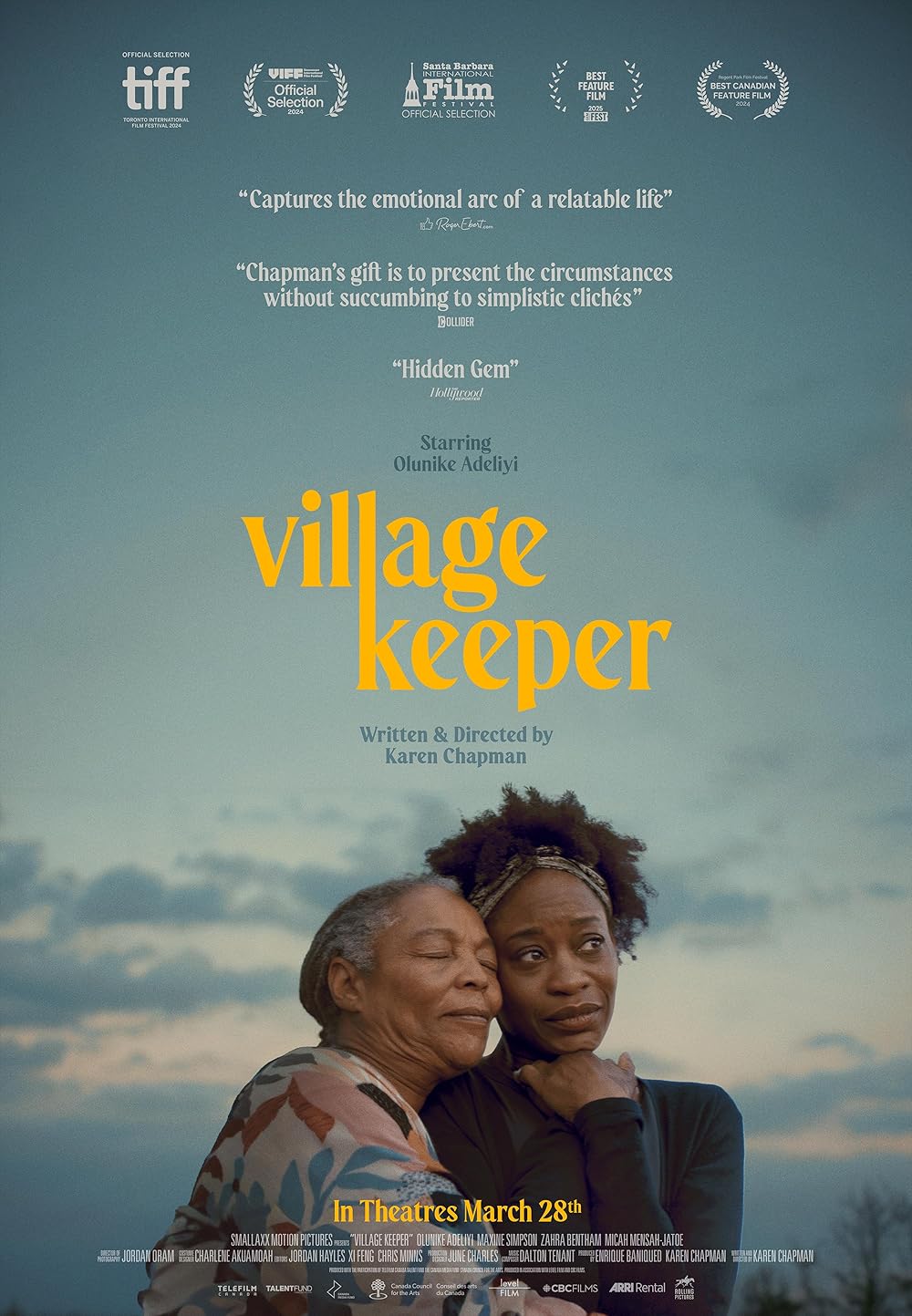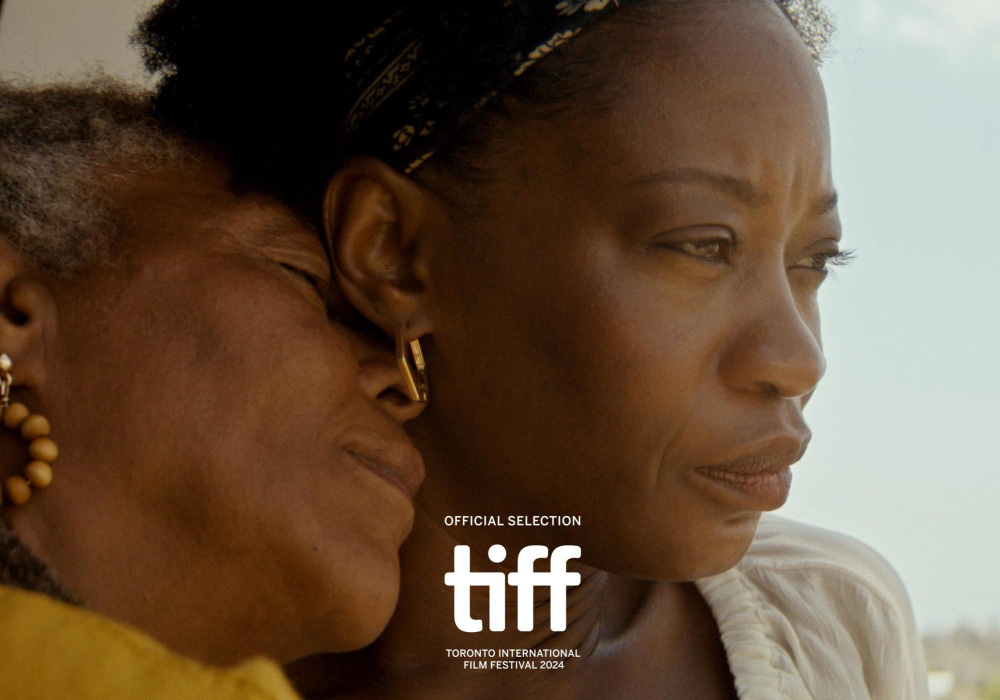A powerful portrait of motherhood, grief, and healing rooted in Toronto’s Lawrence Heights. Karen Chapman’s Village Keeper makes a remarkable TIFF debut, expanding on her award-winning short Measure.
Some stories don’t just stay with you—they shift something inside you. Village Keeper, the debut feature by Toronto-based filmmaker Karen Chapman, is one of those rare films. Premiering at TIFF 2024, it brought to the screen an emotionally rich, deeply grounded portrait of a mother navigating grief, survival, and self-discovery. For Chapman, this film is a culmination of years of storytelling focused on voices often sidelined—and a powerful expansion of her award-winning short film Measure.
Originally premiering at TIFF in 2019, Measure was met with critical acclaim and went on to win several awards, including Best Overall Film at the CineFilm Film Festival, Best Directing at the Women in Film & Television Toronto Showcase, and the International Hollywood Foreign Press & Residency Award. The nine-minute short offers a powerful glimpse into grief through the eyes of a young Black boy who takes on the emotional burden of adulthood in support of his single mother. It shares the emotional DNA and universe of Village Keeper—exploring themes of loss, resilience, generational tension, and fleeting moments of joy. With Village Keeper, Chapman builds on this foundation to craft a broader, deeply textured portrait of motherhood and healing.
Set in Toronto’s Lawrence Heights, a neighbourhood full of history, heart, and cultural strength, Village Keeper follows Jean, a widowed mother raising two teenagers while juggling work, fear, and the weight of unspoken trauma. After a sudden loss disrupts the fragile balance of her life, Jean moves back in with her mother and begins quietly battling the forces—internal and external—that threaten her family’s stability. The setting, with its mix of tight-knit community bonds and systemic challenges, adds depth to a story that’s both highly specific and universally resonant.
Olunike Adeliyi delivers a commanding, layered performance as Jean. Many TIFF-goers will recognize her from The Fire Inside, which also screened at the festival this year. I met her by chance in a hotel lobby during TIFF and took the opportunity to congratulate her on having two powerful films at the festival. We chatted briefly, and I mentioned I’d be attending the red carpet for The Fire Inside the following day—where I was later able to photograph her in all her radiant elegance. In Village Keeper, Adeliyi brings immense vulnerability and quiet resilience to the screen. She moves through the film with the weariness of someone carrying too much, but also with flickers of hope that shine through when you least expect it.

One of the most memorable performances in the film comes from Maxine Simpson, a retired ICU nurse making her acting debut. Playing Jean’s mother, Simpson radiates lived wisdom and raw emotion. Her portrayal of the family’s quiet matriarch is nothing short of remarkable—and it's almost impossible to believe this was her first time in front of a camera. The scenes between Adeliyi and Simpson are some of the film’s most tender, layered with love, tension, and generational understanding.
Chapman’s direction is confident and deeply empathetic. She uses sound, silence, and memory—especially through flashbacks—to build an immersive emotional landscape. During a television interview, she spoke about the quiet strength of mothers, saying they “create laughter and build shelter for us all the while sheltering their own broken hearts.” That sentiment echoes throughout the film. Jean is not just a mother; she is a keeper of pain, love, and legacy—doing her best to protect her children while still learning how to protect herself.

What makes Village Keeper especially powerful is that it doesn’t stay in the trauma—it moves through it. It’s about how people coexist with pain while finding their way back to joy, sometimes in small but radical acts. One scene that struck a chord with me is when Jean, against financial logic, chooses to participate in the Toronto Caribbean Carnival (Caribana). She plays mas—not because she can afford to, but because she needs to. The costume, the music, the moment of release—it’s a declaration of presence, of reclaiming space and joy. It’s one of the film’s most visually arresting and emotionally freeing moments.
Village Keeper resonates deeply because it understands the quiet, everyday gestures that carry emotional weight—a glance between generations, a moment of silence held too long, a decision to choose joy despite pain. Chapman’s film lives in that emotional register: tender, truthful, and richly human. It reminds us that healing often begins not with grand declarations, but in the small acts of grace we offer ourselves and each other.
The film speaks to the lived experiences of many Torontonians—especially Black and marginalized families—who navigate housing precarity, generational trauma, and invisible labour with grace and grit. But more than anything, it’s a story about love: messy, imperfect, enduring love that shows up in whispered apologies, long stares, and the courage to begin again.
Karen Chapman has made a remarkable debut. Village Keeper is more than a film—it’s a healing offering. A reminder that sometimes, the bravest thing a mother can do is choose herself.
The film is set to release in Toronto, Montreal, and Vancouver theatres on March 28.







Comments powered by CComment